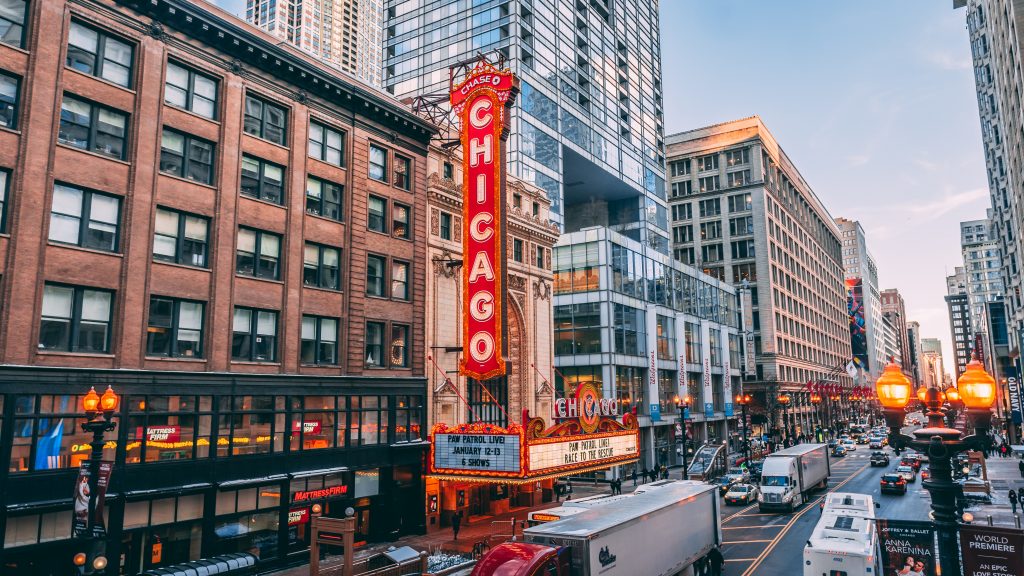For well over a decade, the Brooklyn Hip-Hop Festival has been one of the leading showcasing events for established and up-and-coming voices in the world of hip hop. For people who live in and around New York City, this festival is often the best opportunity to see some of the best hip-hop talents in the country. Unfortunately, if you missed out on the festival, you probably will not be able to see your favorite hip-hop artists perform in the general vicinity of New York City in the near future.
A radius clause is a common legal tool used by concert promoters and organizers to help protect them from losing sales and to regulate the concert industry. Understanding how a radius clause works might be important for fans looking to make sure that they don’t miss out on seeing their favorite artists perform live when they come to town. However, for concert and event promoters, recognizing and knowing how radius clauses work can be extremely important in ensuring that the events and concerts you promote will be successful.
Below, we briefly explain how a radius clause works, when concert and event promoters should consider using a radius clause of their own, and how radius clauses generally affect the work of these promoters.
What is a Radius Clause?
Imagine a concert promoter who spent the better part of a year working to book Nas for a concert in the Denver, Colorado area. Getting the concert organized would include an enormous amount of work, including settling on contractual terms and conditions with her agent or manager, securing a locale for the event, setting up an online ticketing software system to book the event, and engaging in an aggressive marketing and publicity strategy.

It would be extremely frustrating for this concert promoter to find out that just three weeks after the established date for the concert he or she is organizing, Nas would also be performing in Colorado Springs, which is just 60 miles from Denver. Due to the geographical and timeline proximity, the promoter could probably expect to lose an enormous amount of ticket sales, as many people interested in attending the concert might choose to travel to nearby Colorado Springs.
A radius clause is a tool that is commonly used by concert and event promoters to protect them from losing sales, such as would likely occur from the example above. As a definition, a radius clause refers to a contractual deal point between the event organizer/promoter and the performing artist that ensures that the celebrity does not perform within a certain number of miles from the venue where the concert or event is taking place. A radius clause also commonly sets limitations regarding a certain time frame before and after the event when the artist can perform another concert.
For example, many of the biggest and most popular music festivals across the country are known for setting a “90/90” radius clause. This clause essentially means that the musicians, artists, and performers who present at the music festival cannot organize other concerts within 90 miles for 90 days from the date and time of the music festival.
A radius clause, then, is a form of protection for the concert organizer or promoter, and can help to control and organize the tour schedule for different artists and celebrities. When utilized correctly and fairly, a radius clause can ensure that multiple concerts or events are not constantly and unfairly competing for ticket sales through having several concerts organized in an area and time frame that are far too close together. In this way, a radius clause can be a great way of protecting your investment, while also protecting the interests of the artists, celebrities, and musicians you hire, who obviously prefer to perform in front of full audiences.
When You Should Use a Radius Clause?
Despite the good intentions and purposes behind a radius clause, there have been instances where large music festivals and concerts have attempted to utilize a radius clause to unfairly limit the ability of smaller concert and event promoters to organize events in their geographical area. For example, in 2010, the Illinois attorney general opened an antitrust investigation into the Lollapalooza festival’s use of extreme radius clauses.

The popular Chicago summer music festival imposed severe radius clauses which allegedly barred performers from organizing concerts within a radius of 300 miles from Chicago for a total time period of 9 months (six months prior to the festival, and three months afterward). This radius clause, then, essentially handcuffed concert promoters from attempting to organize concerts with popular artists such as Lady Gaga, Arcade Fire, and Soundgarden in major cities such as Detroit, Indianapolis, and Milwaukee.
According to an article in Rolling Stone Magazine, one prominent talent booker for a Chicago club stated that: “The radius clause does seem extreme… It’s nine months, essentially. It’s hard to deal only with three months of available talent, assuming Lollapalooza is grabbing the cream of the crop.”
Even though some major concerts and festivals have used radius clauses to undermine smaller event promoters, these clauses can and should be used by concert and event promoters of all different sizes. So when exactly should you use a radius clause?
If you are spending a significant amount of time and money to organize the concert, then a radius clause will obviously be an important tool to help you protect that investment. Furthermore, for mid-level bands, artists, and performers, live concerts are important sources of revenue. Carefully crafted radius clauses can help to ensure that their summer tour is well-organized and that the events they perform get the largest possible audience.
To determine the proper time and distance for a radius clause, it is important to take into consideration:
- The nearby cities and markets that could potentially affect the total amount of ticket sales you generate through pulling consumers away from your event. This free, online map tool can help you determine the amount of miles from your city when you are writing up your radius clause.
- Whether your event is going to be an open or closed event. In general, closed events that have a smaller audience should also have a smaller radius clause, both in terms of time and distance. For example, a closed event may state that the artist shall not perform within 20 miles or 30 days on either side of the event date. An open event may increase that to 150 miles and 60 days.

Lastly, it is also important to take into consideration that there may be times when a radius clause is NOT in your best interest. For example, if you own and operate a small hip-hop club in Chicago or Milwaukee and are trying to get some big-name hip-hop artists to perform at your club, they may hesitate to sign a contract with a radius clause if that prohibits them from potentially signing up for a bigger concert that may come along.
When searching for musical talent for your events, you need to also consider the type of artist you are targeting, and the types of concerts or events that are regularly organized in your geographical area.
How a Radius Clause Affects Event Promoters?
For better or worse, radius clauses are an established and conventional contractual tool used by concert and event promoters across the country. At their worst, a strict radius clause used by the largest concert organizers may very well negatively affect smaller concert organizers who are within the geographical radius of where the concert or festival is taking place.
At their best, however, a good radius clause can help to protect the interests of all parties involved. For the event or promoter, a radius clause is a great tool that can help you protect your economic investment without unfairly causing harm to other event promoters in the same region.
Whether you choose to use a radius clause or not when booking the best talent for your concert or event, Booking Agent Info is the most up-to-date celebrity contact info database that provides you with the contact information for the official agents, managers, and publicists of the leading celebrities, performers, and artists.



